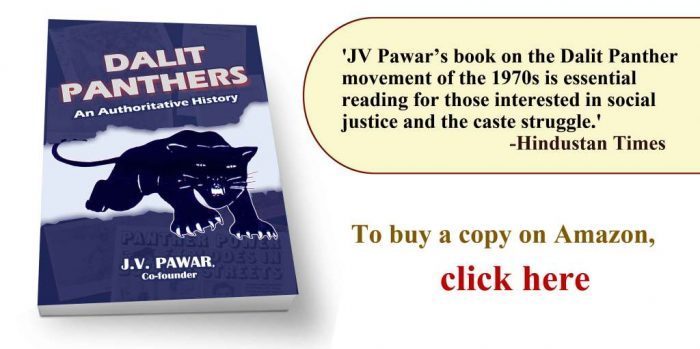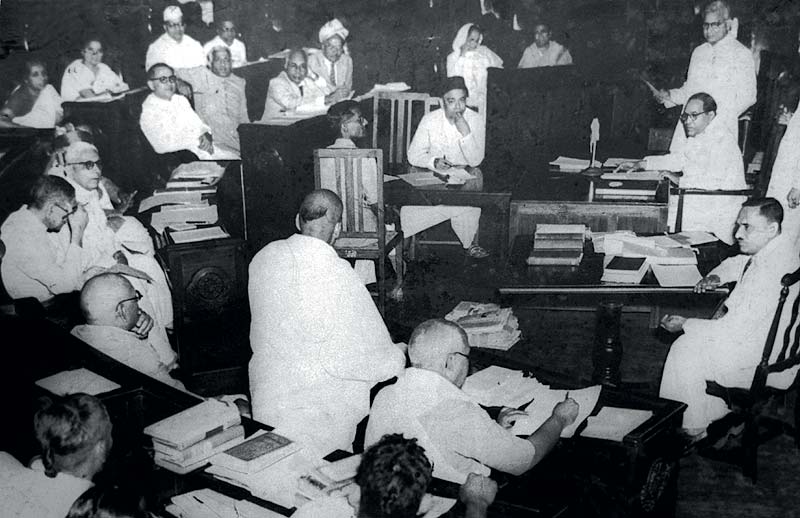Raja Dhale (30 September 1940 – 16 July 2019)
The Dalit Panther movement came up as a response to the atrocities against Dalits, the ‘Untouchables’, all over India, to which both the government of the day and so-called representatives of Dalits, the leaders of the Republican Party of India, were turning a blind eye. The RPI leaders were in fact busy squabbling and ingratiating themselves to the ruling Congress party. According to J.V. Pawar, in his Dalit Panthers: An Authoritative History, Raja Dhale nurtured Dalit Panthers after it was birthed by Namdeo Dhasal and him in the early 1970s. Dhale was in his early thirties then. Pawar paints a portrait of a man who was a fiery writer and orator, yet sensitive and magnanimous. People attended Dalit Panther meetings just to hear him speak. He wasn’t drawn to power but to justice. On reading Pawar’s references to him, one cannot help but be impressed with his personality.
When the Congress’ government at the Centre announced that it was mandatory for all cinemagoers to stand and sing the national anthem before a show – not unlike what we were made to do for a few years recently – the Maharashtra police started implementing the order in all earnestness. This is what Raja Dhale wrote then in a Marathi magazine called Saadhana:
“A Brahmin woman is not disrobed in Brahmangaon, but a Buddhist [Dalit] woman is. And what is the punishment for it? Imprisonment for one month or a fine of Rs 50! If a person does not stand up to show respect towards the national flag, the fine is Rs 300. The national flag is just a piece of cloth, a symbol in specific colours, yet disrespect towards it invites a heavy fine. But if a woman in flesh and blood worth her value in gold is disrobed, the fine is just Rs 50. What is the use of such a national flag? Is it to be shoved in the arse? A nation comes into being due to its people. Is the grief of showing disrespect to a symbol more than that of showing disrespect to people? What is more?
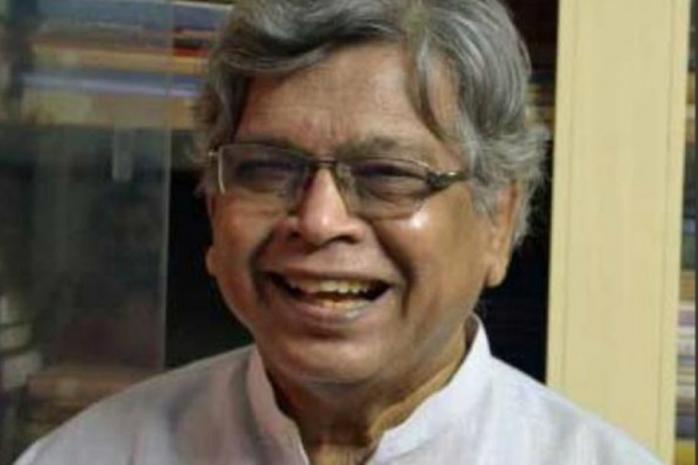
The value of our dignity is not more than the price of a saree. Hence, such offence should invite a severe punishment. Or else, how will patriotism thrive?”
Also read: Short but impactful life of Dalit Panthers
During its brief existence, the Dalit Panther intervened in several cases of atrocities against Dalits all over Maharashtra. One of them was the blinding of Gavai brothers by the son of a rich landlord in Dhakli village of Maharashtra’s Akola district. The son and his accomplices had gouged out their eyes when they asked him to follow through on his promise to marry their 16-year-old sister who was pregnant with his child. When they approached the local police, they refused to register their complaint, so they sought the help of the Dalit Panthers. A series of manoeuvres by the Dalit Panther led to the Mumbai Police agreeing to grant the Gavai brothers an audience with prime minister Indira Gandhi on her visit to Mumbai. Pawar recounts that meeting. Dhale was there, too:
“It was our first meeting with a prime minister. On 1 February 1975, when she alighted from the aircraft, she was led to the place where we were waiting, along with the chief minister, his Cabinet colleagues, the director general of police, the police commissioner of Mumbai and other officials. She expected us to courteously fold our hands when she approached us. We did not. When she folded her hands, I told her, pointing to the Gavai brothers, “See with your own eyes, what kind of atrocities are being committed in your rule.” She was enraged at my behaviour and asked, “Yeh raj(ya) kya tumhara nahi hein?” (Is this not your rule/state, too?) I fearlessly told her, “No. This kind of injustice is done in your rule alone.” I was using the word “raj” to mean “rule” while she probably heard “rajya” or “state” (of Maharashtra). For about four minutes, I vented my anguish, before Chief Minister Naik interrupted to introduce Raja Dhale to her: “This is Raja Dhale,” he said. He probably wanted to tell her that Dhale was the same person who had written a controversial article about the national flag. But Dhale would have none of it. He snapped at the chief minister and asked him to allow me to continue my conversation with the prime minister. I picked up where I left off and told her about the whole incident. The Gavai brothers narrated their ordeal and asked for justice.
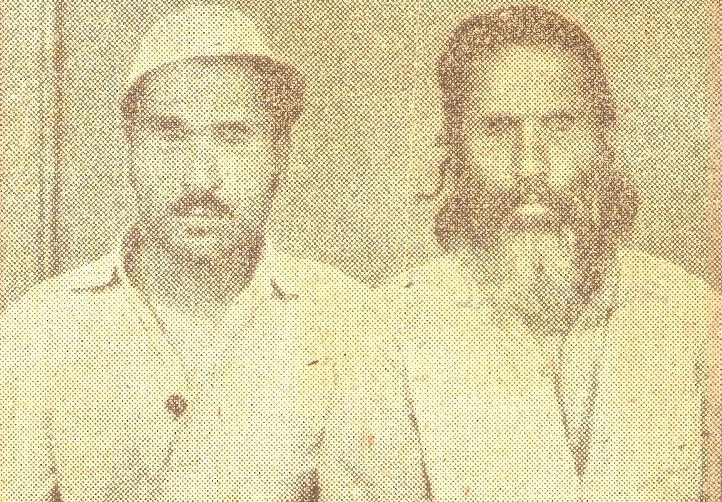
This visit of Mrs Gandhi turned out to be different. When she heard about the barbaric act and looked into the eye sockets of the victims, her eyes were filled with tears. She immediately asked the chief minister to conduct a thorough enquiry into the incident. I raised my voice and said, “We don’t trust the Maharashtra government. If an investigation is to be held, let it be done by the Central Bureau of Investigation. Maharashtra government is an enemy of Dalits.” I gave a memorandum to Mrs Gandhi, who accepted it and handed it over to her personal assistant. When I was going to give the chief minister a copy of the memorandum, he tried to avoid receiving it. When Mrs Gandhi saw it, she shouted at him, “He is giving a memorandum to you and you are not even accepting it. If you behave like this, these people will go against you.” Naik had no choice but to accept it. She turned and walked away, touching her eyes with the end of her saree. We returned in a police vehicle with the satisfaction that we were able to present the case of Gavai brothers in person to the prime minister. She went on to announce compensation for the victims.
On 2 February 1975, all the newspapers prominently displayed the news of the Gavai brothers meeting the prime minister. I received a message from the police that the chief minister wanted to meet the Gavai brothers. I, along with the brothers, went to the Sachivalaya and met the chief minister.”
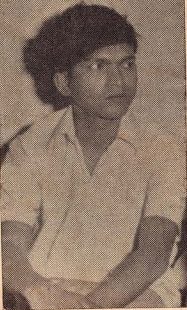
Having consistently spoken out against the Congress governments at the Centre and in Maharashtra to secure justice for the downtrodden, the Janata Party looked to secure his services during the Emergency. But he knew exactly what was happening and wasn’t going to be fooled. Pawar writes:
“I received a message that the Janata Party was interested in nominating Raja Dhale from the Nanded Lok Sabha constituency. There were also messages that I would be made a Cabinet minister once power was wrested from the Congress by non-Congress parties. N.P. Nikumbh, who was legal advisor to Bharatiya Bouddha Mahasabha, had conveyed these messages. He was also linked to a faction within the Congress party that was allied with the Janata Party and was one of the five members involved in policymaking. If we had accepted the proposal, S.M. Joshi, the socialist leader who was one of the founders of the Janata Party, might have kept his word. But we knew that this party would not last, because it had a one-point agenda and that was to oppose the Congress party. We neither trusted the Janata Party nor the government. The constituents of the Janata Party included those who were ideologically opposed to one another. Raja Dhale used to compare the Janata Party leaders imprisoned during the Emergency to Lord Krishna born in prison, and raise doubts about their Bhagvadgita.”
Dhale passed away today. He never walked the corridors of power. He walked the streets and those in the corridors of power heard him.
Forward Press also publishes books on Bahujan issues. Forward Press Books sheds light on the widespread problems as well as the finer aspects of Bahujan (Dalit, OBC, Adivasi, Nomadic, Pasmanda) society, culture, literature and politics. Contact us for a list of FP Books’ titles and to order. Mobile: +917827427311, Email: info@forwardmagazine.in)
The titles from Forward Press Books are also available on Kindle and these e-books cost less than their print versions. Browse and buy:
The Case for Bahujan Literature
Dalit Panthers: An Authoritative History
Mahishasur: Mithak wa Paramparayen
The Case for Bahujan Literature
Dalit Panthers: An Authoritative History
